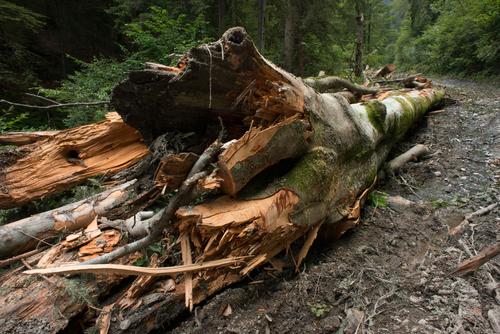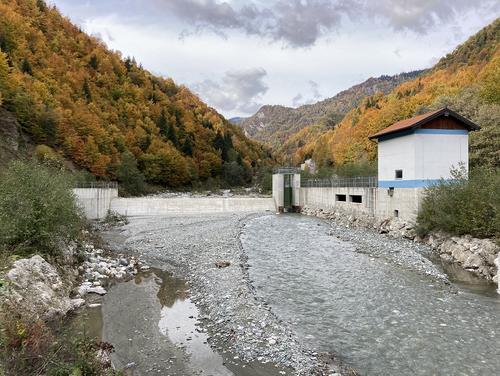++ Woody biomass and hydropower can continue to count towards renewable energy targets ++ No will for sustainable climate policy in the EU in sight ++

In the Romanian Carpathians, the destruction of valuable forests continues unabated, including for the production of woody biomass. The infringement proceedings against the Romanian authorities have been suspended for months.
© Matthias Schickhofer
Hydropower plants destroy the natural ecosystem of a river. They thus run counter to the EU's self-imposed goals of ensuring a better condition of our rivers. Yet energy production from hydropower continues to be subsidised by the EU.
© Ulrich Eichelmann/RiverwatchRadolfzell, Brussels. Woody biomass burned for energy can still be used by Member States to reach Renewable Energy targets if this biomass fulfils certain sustainability criteria, European leaders on the Renewable Energy Directive have decided in the last trilogue that ended in the early mornings on Thursday 30th of March. “It’s unfortunate that the EU is not committed to actually solving the ecological crisis we are facing,” says Bruna Campos, Senior Policy Manager at EuroNatur. “The revised Renewable Energy Directive might mean that primary and old growth forests should not be cut to burn biomass, but in theory that should already be the case. Yet, millions of cubic meters of forests are being cut yearly for biomass.”
For hydropower, no sustainability criteria have been adopted, as what the European Parliament was initially asking for. Only a mention of the Water Framework Directive and the impact of hydropower have been mentioned in a recital. In addition, hydropower and biomass plants may be added to accelerated areas, where in some cases, an Environmental Impact Assessment might be bypassed in these areas. "It’s not just biomass that has been a failure in the EU's attempt to revise the Renewable Energy Directive," added Bruna Campos. "Hydropower has detrimental consequences to nature which was highlighted in the Biodiversity Strategy to 2030; however, the EU is not committed to steering away from such types of energy production. The EU is spending more time trying to bypass environmental legislation than actually finding ways to implement it," continued Bruna Campos. "Leaving it up to Member States to bypass Environmental Impact Assessments when they think is justifiable is a recipe for disaster".
Although EU decision makers did increase the renewable energy target from 30% to 42.5% by 2030, this is not nearly enough to ensure that 100% renewable energy is achieved by 2040. Furthermore, having fake renewables be part of that target is not taking the climate crisis seriously enough.
Background information:
Both the ecological and climate crises threaten the planet's health, including human livelihoods and biodiversity. Concerning this, the European Commission proposed a revision of the Renewable Energy Directive (RED) on July 14, 2021. However, the Commission’s proposal did not ensure that the EU’s future for renewables would not negatively impact nature. EuroNatur has been advocating to EU decision makers for a fit-for-purpose RED – a RED4Nature – that will focus on low-impact energy production, specifically, prohibiting the construction of hydropower dams on rivers and biomass logging in primary and old-growth forests. A RED that works for nature is the only way to help us solve the biodiversity and climate crises.
Contact:
Anja Arning, anja.arning(at)euronatur.org, Tel.: +49 (0)7732 – 92 72 13
Select on which of your areas of interest you would like to receive our press releases.
You can subscribe to our RSS feeds to receive all the news on the topics of your choice.


